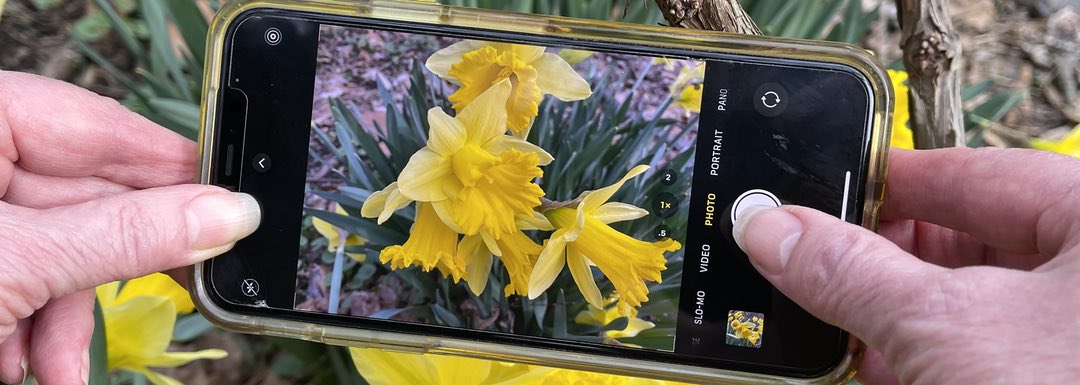
#myplantscentmemory
On Earth Day 2021, the World Sensorium/Conservancy launched an initiative inviting people to tell the world about the scent of a plant that triggers memories for them. This will be an ongoing effort to gather scent-triggered memories from around the world. We must let others know why and how certain plants and their scents are important to us— how they support our lives and the world we love. These linked memories bring attention to what plants mean to us, stir imagination, and change the conversation. By weaving these plant narratives, we give momentum to their conservation. Plant smells are hard to capture in words but communicating your scent triggered memory can help tell this story.
Share your short plant scent memory video on
Instagram, Facebook, or YouTube.
Tag your video @worldsensorium and include
#myplantscentmemory and #worldsensoriumconservancy
We’ll Plant a Tree In Your Name
If you sign up, when you share your video, we’ll plant a tree in your name and your name will be listed on the #myplantscentmemory page. Sign Up and invite your friends to and make a scent memory video.
Every action adds up. Reforestation addresses climate change, helping all plants thrive.
We hope you’ll be part of it!
Aromatic plants can evoke autobiographical memories for people around the world but these sources of our scent-fueled memories are at risk. Help bring attention to what these plants mean to us by creating a short video interpreting your memory experience triggered by aromatic flora.
The goal is to spark an emotional response in others that have become indifferent to the natural world. We need everyone to act, restore and conserve plant biodiversity, because it is our united actions that will save the natural world for future generations.
Smells of plants are special because they often bring back specific meaningful memories that otherwise might never have been recalled from long-term memory. The brain regions that process smells, emotions and memories are intrinsically intertwined in a unique evolutionary wiring that has enabled our survival. Smelling aromatic plants not only evokes positive autobiographical memories, but their molecules reduce physiological stress and systemic inflammation, bringing about a sense of well-being. Over time, the scents of some plants have become a critical part of our bio-cultural heritage.
Proust Phenomenon
In Swann’s Way, Marcel Proust (1871-1922) perfectly described how a bite of a madeleine biscuit dipped in Linden tea immediately transported him to a forgotten time in his childhood. How olfactory stimuli can cue autobiographical memories became known as the “Proust phenomenon” and in time scientists found that odor-evoked memories are most often recalled from the first couple decades of life.
Plant scents not only enhance memory but act as sensorial chemical cues to memory retrieval.
During difficult times, it is the captivating beauty of a flower’s scent that may lift your spirits and change your mood. That positive feeling of lift and connection is real and scientifically confirmed. Unfortunately, many plants and the magnificent places they grow in are threatened. As global temperatures climb and the destructive effects mount, humankind must transform our impact on the natural world. It is essential that we stop exploiting plants and protect them together as conservationists.
There are many roles aromatic plants play in our lives from time spent in natural landscapes and spiritual practices, to gardening, cooking, celebrations, traditions, self-care and health practices. We love aromatic plants for their beauty and the sense of well-being they bring about in us.
Conservation action not only preserves the natural environment; it saves culture, traditions, and meaning that can only be known through sense of smell.
Read more about olfaction, plants, and memory
It’s the smell of the Arnica cream your mother used to rub on your bumps and bruises.
It’s the White Sage along the path of your favorite hiking trail.
It’s the Sandalwood perfume you wear on date night.
It’s decorating the Christmas tree with loved ones.
All of the above plants are endangered.
TELL US AN AUTHENTIC ONE-MINUTE STORY TO EMPOWER OTHERS TO CONNECT WITH NATURE.
Create your mini memoir, a short video, a minute long or less, that describes an autobiographical memory that was triggered by an aromatic plant. Try and date the time in your life that the memory recalled. Name the plant and discuss how pleasant and vivid the memory episode was. Your video should shed some light on the aromatic plant’s scent and its meaning in your personal life, and in your local culture.
Take this opportunity to explore your memory experience and tell your story. The goal is to spark an emotional response in people that have become indifferent to the natural world.
Make it funny or serious, surprising or enlightening, but keep it authentic. You can simply tell your story directly to the camera or combine it with other production value and technical methods. To make the video accessible to more people include a transcript in the text area.
When you caption your video, think about who, what, where, when, and how.
Plant Your Scent Cued Memory Video in the world by sharing it on Instagram, Facebook, or YouTube and don’t forget to tag your video @worldsensorium and include #myplantscentmemory and #worldsensoriumconservancy to be a part of the ongoing film festival.
Together we can amplify the strong relationships we have with the natural world and build a conservation movement to sustain it.
Below are the first three in a series of the one-minute visual explorations of olfactory memories by Aurora Huiza, Elle Rinaldi and Fiona Kane!
Your video can be simple, expertly produced, or anywhere in between! Get creative and forward the link to your friends around the world. Our true stories and the conservations around them can change everything.
Memory
Aurora Huiza
Connection
Elle Rinaldi
Remembering
Fiona Kane

